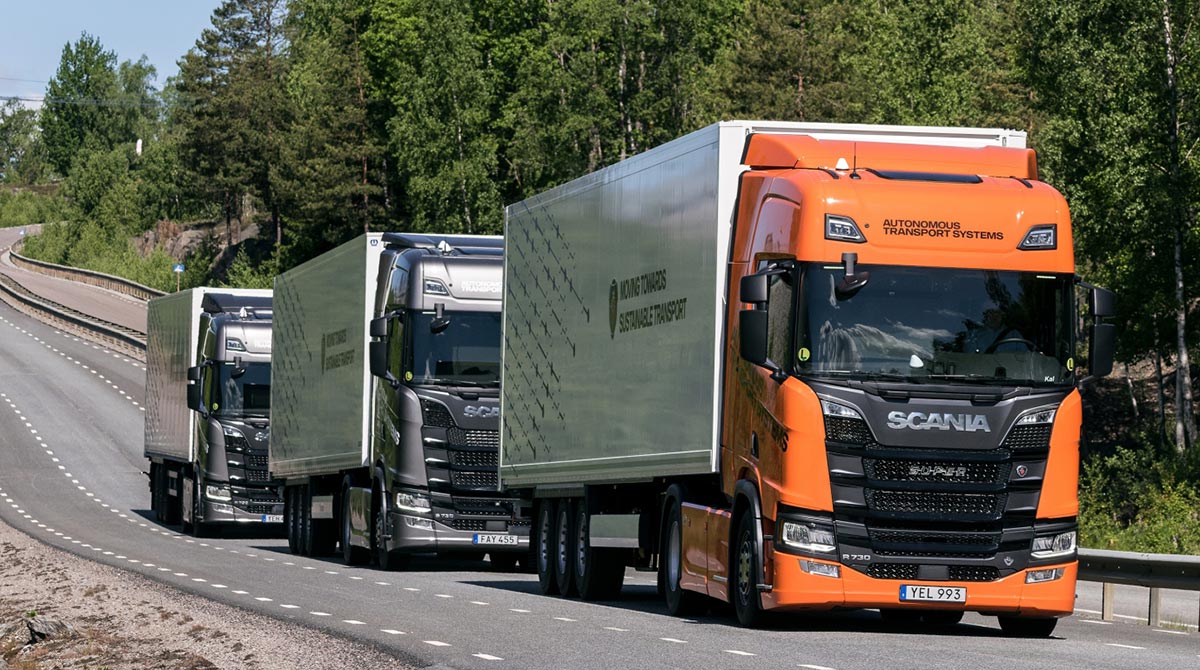Scania Says European Convoys of Semi-automated Trucks Coming Before 2025

Scania said Europe’s truck manufacturers have presented a detailed timeline of steps leading up to the introduction of convoys of semi-automated trucks on Europe’s motorways before 2025.
Truck maker Scania is a unit of Wolfsburg, Germany-based Volkswagen AG. In March, Volkswagen acquired 16.2 million common shares in U.S. truck maker Navistar International Corp. for a 16.6% equity stake.
The timeline, the EU Roadmap for Truck Platooning, also provides guidance to policymakers and authorities on the regulatory changes and political support necessary for cross-border truck platooning, Scania said June 12.
RELATED: Truck platoons could hit Iowa highway this year
Platooning involves a line of closely spaced trucks linked by wireless communications operating in unison, with the lead truck setting the speed and transmitting braking signals to the rest of the platoon — it is intended to improve fuel efficiency and safety, experts said, and may involve the following drivers steering or not, depending on the application.
“The technology for platooning with trucks of the same brand is already available today. But clearly customers will need to be able to platoon with trucks of different brands, so our next objective is to introduce multibrand platooning,” Erik Jonnaert, secretary general of the European Automobile Manufacturers’ Association, said in a statement after he introduced the road map to the European Parliament.
RELATED: Navistar demos platooning technology, concept vehicle with new LT, HX series trucks
By 2023, it should be possible to drive across Europe on motorways with multibrand platoons without needing any specific exemptions for crossing national borders — a prerequisite for international transport, Scania said. Subsequently, allowing the driver of a trailing truck to rest might come under consideration.
However, fully autonomous trucks will only come later, Jonnaert said.
While Scania said it and other manufacturers are already exploring the business case for truck platooning with the logistics sector, certain conditions that need to be met before 2023 are beyond the control of the truck industry.
“That’s why we will also need to strengthen cooperation between all players involved, including operators of road infrastructure, transport companies, regulators and insurance companies, but policymakers in particular,” Jonnaert said.
Also, Europe will need to create a supportive regulatory framework before truck platooning can become a common sight, Jonnaert said. “And that’s exactly where the policymakers come in. They will need to develop new rules, make changes to existing legislation and harmonize international and EU rules.”

